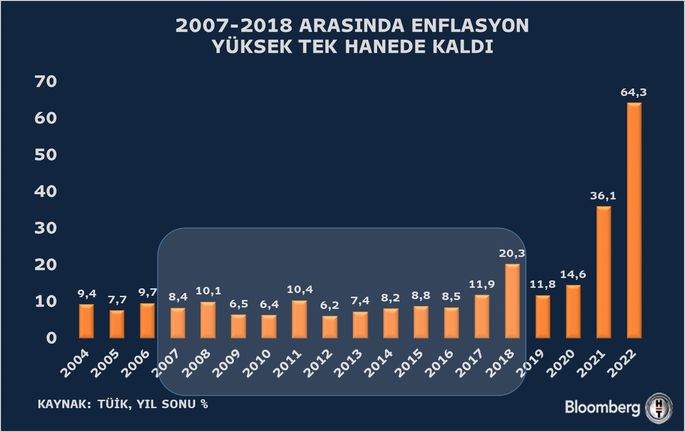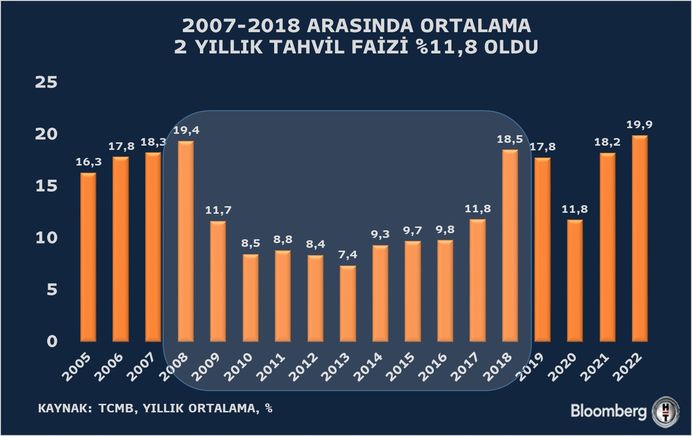Lightning is at the helm of the economy again – Bloomberg HT

The economy was once again entrusted to Mehmet Şimşek.
Şimşek assumed the duty of Treasury and Finance Minister in the cabinet announced by President Recep Tayyip Erdoğan. Şimşek will undertake all the coordination regarding the economy.
With Şimşek taking the helm of the economy, it is a matter of curiosity how the economy model that has been implemented in Turkey in the last period will take shape.
While financing growth through monetary expansion was the basis of the economic model that has been implemented since 2018, the highest levels of inflation in recent years were recorded as a result of the policies implemented. In order to compensate for the consequences of the policies implemented, many macroprudential measures were implemented by the regulatory authorities. In this period, it was seen that foreign investors making both direct and portfolio investments have withdrawn their feet from Turkey.
Especially in the recent period, the decline in the reserves of the Central Bank of the Republic of Turkey has also been one of the main elements on the agenda of the economic public.
Şimşek takes the lead of the economy administration in such a period. It is expected that Şimşek will guide basic choices in the economy, re-establish the relationship of trust with foreign investors, and reduce the deteriorated pricing dynamics in the market to predictable levels.
So, what signals does Şimşek’s performance in previous periods give for the new period? Şimşek, who took the helm of the economy, did what works in the past.
First mission in 2007
Mehmet Şimşek took his first duty in the 60th government, which was the AK Party’s third and Erdoğan’s second cabinet. Şimşek, who served in international financial institutions for many years, entered the 60th government as the Minister of State Responsible for the Treasury. In the cabinet where Şimşek took office, Nazım Ekren was the Deputy Prime Minister for Economy. Ali Babacan, who undertook this task in previous AK Party governments, took the position of the Ministry of Foreign Affairs, which was vacated by Abdullah Gül, who assumed the presidency when the government was formed.
Ali Babacan was appointed as the Deputy Prime Minister responsible for the Treasury in 2009 with the cabinet reshuffle in the environment of the 2008-2009 global financial system eruption, while Mehmet Şimşek was appointed as the Minister of Finance.
Afterwards, Mehmet Şimşek served as Finance Minister in different AK Party governments until 2015. During this duty, he gave priority to the issue of financial discipline. Şimşek, who became the Deputy Prime Minister responsible for the Treasury in 2015, remained in this seat until 2018. Berat Albayrak took his place in President Erdogan’s first-party presidential cabinet.
The course of the economy during the lightning period
During Şimşek’s tenure, the Turkish economy grew by an average of 5 percent, which is the potential growth rate. The 2008-2009 financial crisis, despite Erdoğan’s statements that “the crisis has passed us by,” put pressure on growth and supported its growth with international finance, which was 0.8 percent in 2008; In 2009, it contracted by 4.8 percent.
After the global financial crisis, the economy grew by more than 8 percent in 2010, and reached double digits for the first time in 2011 during the AK Party period. While a fluctuating course was observed in the growth performance in the following period, the growth was reduced to 3 percent in 2018, the year he left office.
In addition to growth performance, Şimşek’s attitude towards inflation, which is the most critical item on his agenda, shows that price stability is prioritized.
Inflation in Turkey remained in single digits during the period that Şimşek held different positions. In 2012, inflation in Turkey was reduced to 6.2 percent. After 2015, when Şimşek completely took over the helm of the economy, it was observed that the acceleration of inflation increased especially with 2017. In the second half of 2018, inflation exceeded 20 percent due to the exchange rate shock experienced during Berat Albayrak’s office.
Defended flexibility in employment
Looking at the employment side during the Şimşek period, average double-digit unemployment was experienced.
While unemployment accelerated due to the recession experienced in the economy in 2008-2009, a downward trend was observed in the following period and a low unemployment rate of 8.2 percent was observed in 2012.
However, it was observed that unemployment fell to 10 percent during the Deputy Prime Minister’s office, when Şimşek fully coordinated the economy.
Şimşek was known as an advocate of flexibility on the employment side.
He defined one of the biggest obstacles to the increase in employment as the burden of severance pay, and defended the transfer of severance pay to the fund. He advocated for the labor market to be as flexible as possible, leading to the enactment of the law on employment agencies.
He was the target of criticism on the labor front, for describing the minimum wage increase as an oppression.
Mehmet Şimşek in the Bloomberg HT archive
During his tenure, Mehmet Şimşek appeared on Bloomberg HT screens many times. Here are Mehmet Şimşek interviews from the Bloomberg HT archive…
2018 Davos interview
2017 – Bloomberg HT-Habertürk joint publication
Click for video
2017 – Bloomberg HT exclusive interview
Who is Mehmet Simsek?
Mehmet Şimşek was born in 1967 in Arıca (Kefre) village of Gercüş district of Batman province. He completed his primary and secondary education in Batman Merkez and high school in Gercüş. He graduated from Ankara University, Faculty of Political Sciences, Department of Economics in 1988. After working as a research assistant at the same faculty for about a year, he passed the exam opened by the Ministry of National Education and went to England to study language and graduate education with an official scholarship. .
Şimşek returned to Turkey in 1993 after earning her master’s degree in finance and economics from Exeter University. He worked at Etibank in Ankara for three months. Then he worked as a senior economist at the United States Embassy in Ankara for about four years.
He settled in New York in 1997 and worked as a researcher in the stock analysis division of international investment bank UBS. Returning to Istanbul in 1998, Şimşek worked for Deutsche – Bender Menkul Değerler for two years, transferred to Merrill Lynch, one of the world’s leading investment banks, and settled in England. In the early days of the Merrill Lynch era, which began in mid-2000, Şimşek’s area of responsibility included the Mediterranean region, which included Turkey, Greece, Egypt and Israel. From the middle of 2001, developing European countries such as Russia, Poland, Hungary and the Czech Republic were added to its area of responsibility.
Şimşek was appointed Head of Merrill Lynch’s Europe, Middle East and Africa Region Economic and Strategic Studies Department at the end of 2005. He left his position at Merrill Lynch in May 2007 to run for the 23rd term parliamentary candidate from the Justice and Development Party. In the General Elections of 22 July 2007, he was elected as the AK Party Gaziantep 1st rank deputy.
In addition to his duties as the Ministry of Finance and Deputy Prime Minister, Mehmet Şimşek also served as a member of the High Planning Council, the Privatization High Council, the Defense Industry High Coordination Board, the Economy Coordination Board, the Money-Credit and Coordination Board, and the Science and Technology High Council. Şimşek also served as the IMF & World Bank Turkey Governor between 2007-2009 and a Member of the Coordination Board of the Istanbul 2010 European Capital of Culture Agency between 2008-2011.








